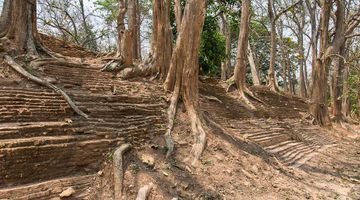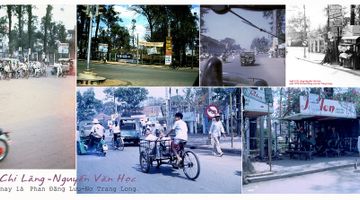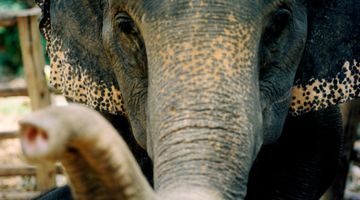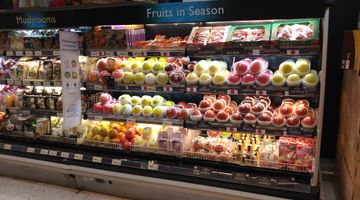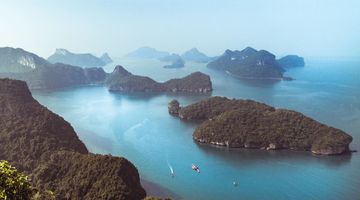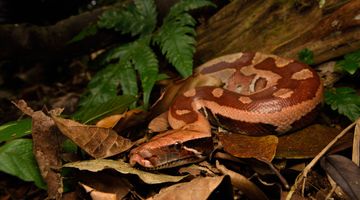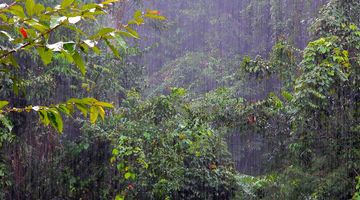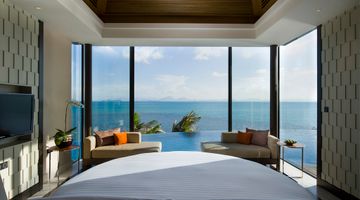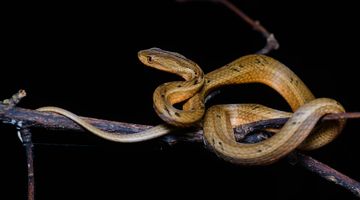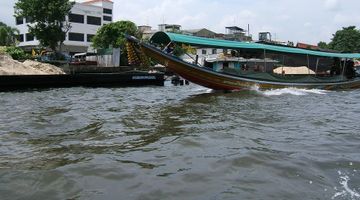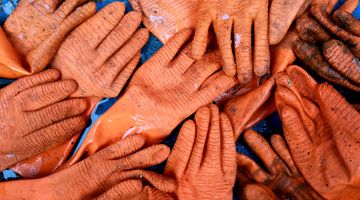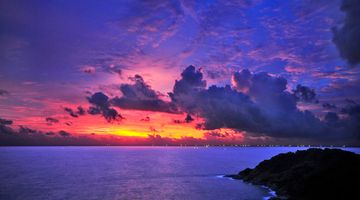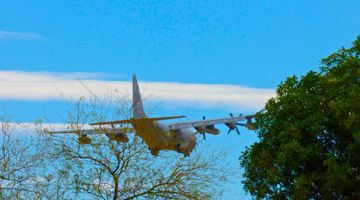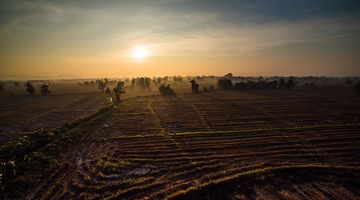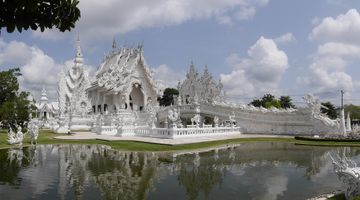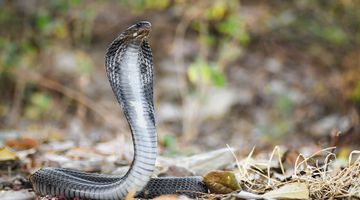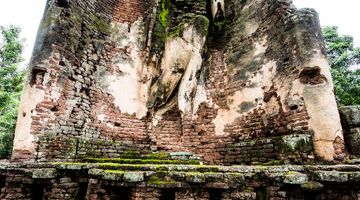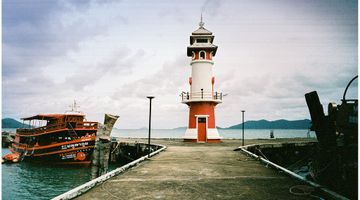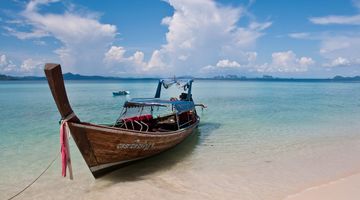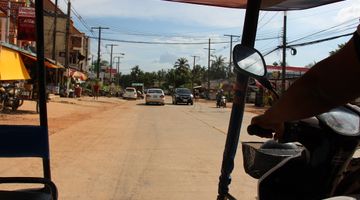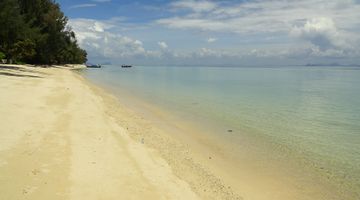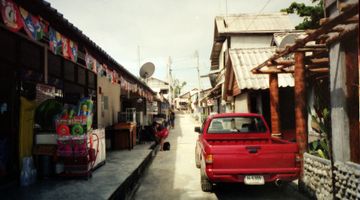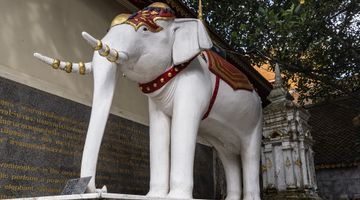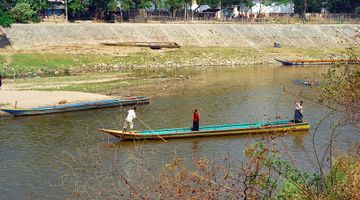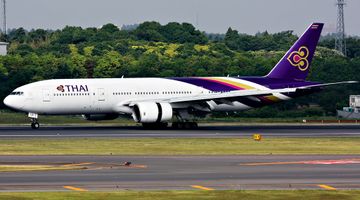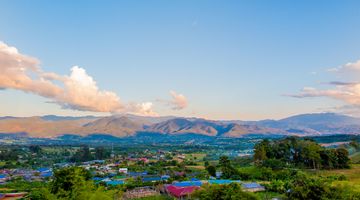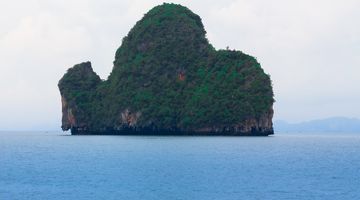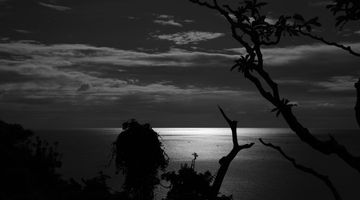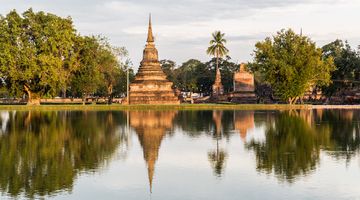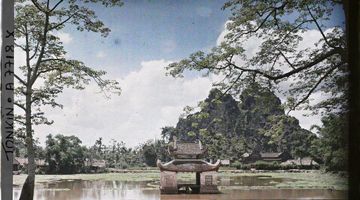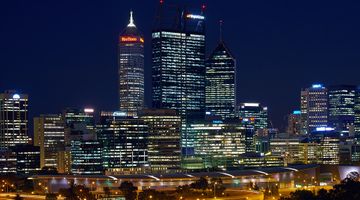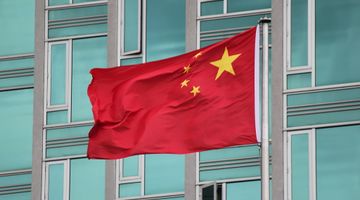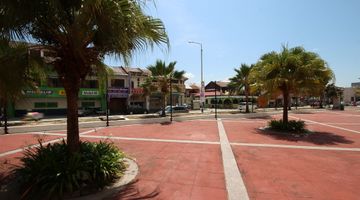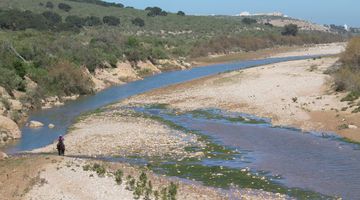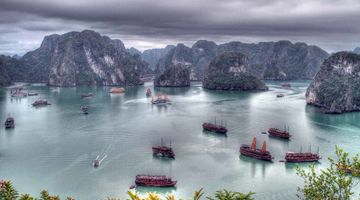Your Quick Guide to Coffee in Thailand
In recent years Thailand’s coffee culture has exploded across the country and become entwined in the various layers of Thai society and everyday way of life. Trendy coffee cafes dot the sidewalks of Bangkok and Chiang Mai and expert baristas strut their stuff down the vibey streets. At the lower end of the coffee spectrum, rickety coffee carts selling sweet, iced-coffee at 20 Baht a pop, line the city lanes straining the steaming liquid with a coffee-sock. Coffee stands are parked haphazardly outside the train stations and in grimy alleyways drawing in the crowds with the intoxicating aroma and generous lashings of sweetened condensed milk.
Coffee culture in Thailand
More than wanting to own a successful coffeehouse, coffee aficionados are striving to develop their own locally grown coffee. Baristas in Thailand are no longer satisfied with brewing exceptional coffee, they are wanting to understand and perfect every step of the coffee supply chain. This unfiltered (excuse the pun) enthusiasm has had a profound influence on Thai coffee culture and the perfectly, Instagramable cup of Joe has become an art form all of its own in recent years.
History of coffee growing in Thailand
Pour over coffee, drip coffee, cold brew coffee, or just a straight up espresso – the Thai’s can’t seem to get enough of the stuff and visitors seemed to have jumped appreciatively onto the Thai coffee wagon too.
The history of coffee in Thailand goes back to The Chiang Mai arabica market and the Thai Royal Project that was created by King, Bhumibol Adulyadej in 1969. This initiative was a government sponsored programme that attempted to alleviate poverty in Northern Thailand in a successful attempt to establish a more environmentally friendly economy. The area used to be notorious for its opium trade and production with many families growing the cash crop in order to survive and to make a living. The locals living in the northern highlands were encouraged to start growing and harvesting coffee as a means of investing in sustainable industries and to make the most of their rich, fertile soil and ideal climate conditions. And what a success it has become!
Commonly known as the coffee capital of Thailand, Chiang Mai is the home of the Royal Coffee Research Centre and Arabica Association of Thailand.
Although Thailand has only been growing coffee for little over a century, the superb quality of coffee that is being produced today as well as the culture of sustainability, has resulted in Thailand becoming one of the leading countries for coffee production in Asia.
There are two types of coffee that are produced, namely, arabica in the north, and robusta in the south. Arabica coffee needs cooler climates and offers a higher quality coffee than the robusta.
A cup of kafae boran, please!
During the 1990s, there were two options for those craving a cup of java: Instant coffee or Kafae Boran. Kafae Boran is ancient, traditional Thai coffee and was created during WWI when money was tight and coffee was expensive. Inexpensive and common grains were added to the coffee beans during the roasting process to make the coffee go further. The drink that now consisted of soy beans, brown rice, sugar, salt, tamarind seeds and even butter was then filtered through a ‘sock filter’ or a fabric bag, poured over with boiling water and left to steep. Cheap, tasty and accessible it was the answer to the coffee shortage and those locals needing a morning pick-me-up before work. Skip ahead to today and the coffee culture and coffee consumption in Thailand has completely transformed, with coffee houses, stylish latte art cafes and roasteries in caffeinated abundance throughout the country.
Coffee growing regions in Thailand
The main Thailand’s coffee growing regions are Doi Chang and Doi Tung in the north, Kanchanaburi in the west, and Chumphon, Surat Thani, Nakhon Si Thammarat, Krabi, Phang Nga, and Ranong in the south.
Doi Chang
The village of Doi Chang, high in the hills near Chiang Rai, located in the Golden Triangle region of Thailand, is a great place for coffee enthusiasts to spend a night or two or even just for the day as a fun day out.
From Chiang Rai it’s an easy 1 and a half ride to Doi Chaang Coffee House with spectacular views of lush vegetation and hill-tribe dotted mountains along the way. Tours of the coffee planation are offered and down the road, Doi Chang Coffee Farm offers a variety of coffees for all to sample and savour as well as bags of beans to buy.
The best time to visit would be around December as the weather is cooler and the processing plant is in full swing. Self-guided tours are also available for visitors who prefer to sight-see at their own pace and leisure.
Doi Tung
Doi Tung, another famous Thai coffee brand, which was initiated by the Princess Mother in 1988 as a sustainable substitute for opium cultivation, is another excellent coffee plantation for travellers to visit. An hour and a half’s journey from Chang Rai, the Doi Tung Royal Villa and Commemorative Hall as well as the plantation, offer an enjoyable and educational way to spend the day. DoiTung Lodge is the ideal spot to spend the night and comes highly recommended by guests for its fantastic location and comfortable rooms.
In the Chiang Rai district, Mae Jan Tai village is the birthplace of Akha Ama Coffee; and as part of the Akha Ama Coffee Journey, 20 participants are able to experience everyday life in the village twice a year learning how the coffee is organically planted and harvested by the locals. The tours take place in November and January and spots fill up quickly. For travellers who long for an authentic and eye-opening encounter, this experience would be right up your ally. Alternatively, one can visit the Akha Ama Coffee Shop in Chiang Mai to sample the brew and contribute to the betterment and advancement of a tribal village.
Kanchanaburi
In the northern part of Kanchanaburi in the west of Thailand, lies Thong Pha Phum a beautiful, unspoilt, mountainous region known for its speciality coffee. Civet coffee, famous for being the most expensive coffee in the world, is sold in Kanchanaburi. Originally from the Sumatra Islands in Indonesia, civet coffee is made from the beans of coffee berries that have been eaten by the Asian Palm Civet that pass through the small cat’s digestive system and come out among the faeces. Not overly touristy by any means, accommodation around Thong Pha Phum is simple, basic and affordable. Try out Thong Pha Phum Place for an enjoyable and comfortable nights stay that will set you back around THB 600 for a double room.
How to get to Kanchanaburi
Take a direct bus or a van from Bangkok.
Chumphon
Chumphon, is the south of Thailand’s most popular coffee district with its beautiful scenery of robusta coffee trees and far-reaching farming areas. Becoming more well-known by tourists in recent years, Chumphon offers visitors delicious coffee, coffee plantation tours and spectacular views.
How to get to Chumphon
Overnight trains and buses ply the route between Chumphon and Bangkok and fortunately it is relatively easy to reach from almost anywhere in Thailand.
Thailand’s most famous coffee brands
Thailand’s most famous coffee brands would have to be Doi Chang (Mountain Elephant) and Doi Tung (Mountain Flag) and they just so happen to be the only Thai coffees to be approved by the EU Coffee Association for the quality and taste.
Originating as a partnership between the Akha hillside tribe of Doi Chang Village in Northern Thailand’s Chiang Rai Province, and Canadian coffee enthusiasts, the Doi Chang Coffee Company dominates the coffee scene in Thailand.
Doi Tung coffee was created as a replacement crop for opium and now even have a scattering of coffee shops across the country. Customers can purchase excellent cups of coffee, bags of coffee beans, as well as handcrafted products where all proceeds get returned to the hillside tribes that crafted them.
The Lanna Café brand of coffee is another coffee that works to sustain and support indigenous tribal farming in northern Thailand. Lanna Café Coffee is created by an NGO assisting in community development of the hilltribe farmers in the Lanna Region of Northern Thailand. It is Arabica coffee that is hand-picked, wet processed and sun-dried and is also Fair Trade Certified. Perfect for people who enjoy giving back to the world, making a difference and enjoying a world-class cup of coffee.
Black Ivory Coffee is another brand of coffee produced in Northern Thailand. What sets this coffee chain apart however is the way that this coffee is created. Made from Arabica coffee beans that have been eaten by elephants and then collected from their dung, this coffee is as unusual as it is pricy. Costing over USD 1,000 per kilogram, a cup of Black Ivory Coffee does not come cheap.
How is traditional Thai coffee served?
Traditional Thai coffee is usually sold at markets or from food stands on pretty much any street corner throughout the country. The ground coffee beans are filtered through a cloth or ‘sock’ with a metal ring and a handle and poured black into a carafe. The coffee is usually steeped for around ten minutes until it is dark, strong and bitter.
Thai coffee is usually rather bitter due to the type of coffee beans used as well as the fact that it is frequently over extracted – most likely in an attempt to make the grounds stretch further and save money. Thai people also frequently use coffee mixed with corn and soy beans, called “Oliang Powder Mixed” by a famous Thai coffee company.
This bitterness is enthusiastically overcome by the locals’ love for sugary delights and lavish lashings of sweetened condensed milk, evaporated milk and brown sugar are added to the hot liquid, which is poured over a handful of ice-blocks. Traditionally known as Oliang, commonly known as Thai iced-coffee, this drink has many different recipes and can include ingredients such as sesame seeds, cardamom seeds, soybeans, corn and rice. On a hot, humid day this sweet, caffeinated traditional drink is relished by tourists and locals alike.
With the coffee consumption and the coffee culture in Thailand exploding across the scene today, other Thai speciality coffees have also entered the awareness of coffee devotees. The usual lattes, cappuccinos, americanos and espressos that Westerners know so well can be found at more commercialised coffee chains in Thailand; with the more traditional, iced coffees being the primary order of the day on the streets. The iced coffees are mostly made sweet but can also be made black over ice with no condensed milk or sugar.
Most popular coffee chains in Thailand
With everyone and their cousin selling coffee and cha yen (iced tea) from food carts around the country, it might be surprising to learn that there are thriving coffee houses and coffee chains throughout Thailand too.
Thailand’s most popular coffee chains would have to be Black Canyon, Amazon, Coffee World and Doi Chaang.
Whether you like your coffee sickly sweet, bitter, iced, hot, or from the faeces of an elephant or civet, the coffee culture in Thailand will have you covered during your daily grind.







